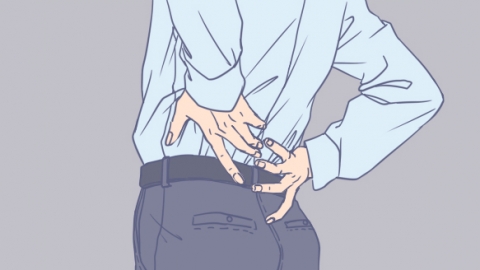Can gallbladder polyps cause back pain?
In general, whether gallbladder polyps cause back pain depends on specific circumstances. Most small, asymptomatic polyps do not lead to back pain. However, if the polyp triggers complications such as cholecystitis or bile duct obstruction, or if its location irritates surrounding tissues, it may indirectly cause referred pain in the lower back. Detailed analysis is as follows:

Most gallbladder polyps are small and do not produce noticeable symptoms. These polyps are typically discovered incidentally during routine physical exams and do not irritate surrounding tissues, thus they do not cause back pain. Patients usually experience no discomfort and only require regular follow-up examinations.
When gallbladder polyps are large or associated with cholecystitis, pain may occur in the gallbladder area. This pain can radiate via nerves to the back and waist, causing dull or distending pain in the lower back. It may also be accompanied by right upper abdominal pain, nausea, and loss of appetite. If a polyp blocks the bile duct and causes biliary obstruction, the pain may also radiate to the back, in which case prompt medical evaluation is necessary.
To reduce the likelihood of discomfort caused by gallbladder polyps, maintain a low-fat diet in daily life, avoid consuming excessive oily or spicy foods, and reduce the burden on the gallbladder. Eat meals regularly and avoid prolonged fasting. Additionally, engage in moderate physical activity, maintain a healthy weight, and undergo regular ultrasound examinations to monitor changes in the size and shape of the polyps.





